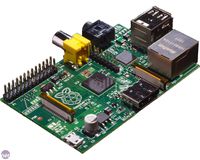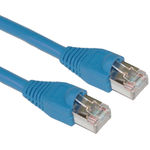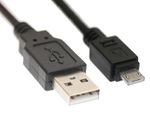Media Broadcaster: Difference between revisions
No edit summary |
m (→Procedure) |
||
| Line 46: | Line 46: | ||
A. Installing and Running the Rasbian Wheezy OS (Operating System) | A. Installing and Running the Rasbian Wheezy OS (Operating System) | ||
* Use [http://sourceforge.net/projects/win32diskimager/ Win32 Disk Imager] to write a boot image to your SD Card. | |||
* Download the [http://www.raspberrypi.org/downloads/Raspbian Wheezy zip file] and extract the file. | |||
* Insert the SD Card into your Raspberry Pi and write the disk image file using the installed win32 Disk Imager. | |||
B. Setting Static IP | B. Setting Static IP | ||
| Line 53: | Line 58: | ||
C.Programming for the Audio Streaming | C.Programming for the Audio Streaming | ||
After installing and running the OS of your Raspberry Pi, you are now ready to program the audio streaming. | |||
In '''LX Terminal''', | In '''LX Terminal''', | ||
Install PulseAudio | Install PulseAudio and these preference GUI with the command | ||
---- | ---- | ||
| Line 92: | Line 97: | ||
---- | ---- | ||
=Project Team= | =Project Team= | ||
Revision as of 13:52, 15 May 2014
Description
a Rasperry Pi-based appliance that broadcasts video or audio via DILC servers.
Materials
A. Audio Streaming
* Raspberry Pi (Model B)

* SD Card with installed Raspbian "Wheezy" OS (Operating System)


* USB Sound Card

* Audio Computer Microphone

* USB Micro Cable with Power Brick (5 Volts, 2 Amperes)
* Ethernet Cable

B. For Programming
*PC Monitor *USB Keyboard *USB Mouse *VGA to HDMI Cable or RCA Cable
Procedure
A. Installing and Running the Rasbian Wheezy OS (Operating System)
- Use Win32 Disk Imager to write a boot image to your SD Card.
- Download the Wheezy zip file and extract the file.
- Insert the SD Card into your Raspberry Pi and write the disk image file using the installed win32 Disk Imager.
B. Setting Static IP
C.Programming for the Audio Streaming
After installing and running the OS of your Raspberry Pi, you are now ready to program the audio streaming.
In LX Terminal,
Install PulseAudio and these preference GUI with the command
sudo apt-get install pulseaudio
sudo apt-get paprefs
sudo reboot
After the system being rebooted, next thing to do is to edit the file /etc/pulse/daemon.conf by these command
sudo nano /etc/pulse/daemon.conf
In that file add the following then Ctrl+o and Ctrl+x to save and exit
resample-method = ffmpeg
default-sample-rate = 44100
alternate-sample-rate = 44100
Project Team
- Catherine Bagotsay
- Dawn Benigno
- Dan Villareal
- Peter Sy

